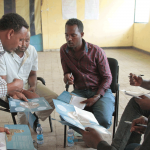
Almost everyone working in the WASH sector knows that water and sanitation are human rights. Many people and organisations want to use human rights in their work. However, a lot of guidance on the human rights to water and sanitation either only explains the legal concepts of the human rights to water and sanitation or is hard to use for people with little or no legal training.
To help address this gap, we have compiled the following tools and approaches that make the human rights to water and sanitation relevant and useable for WASH sector practitioners.
Made for: WASH sector practitioners who work with local government institutions.
About: The Making Rights Real approach enables WASH sector practitioners to engage local government officials on systemic challenges to the realisation of water and sanitation services for all, using human rights. It can be used in any programming that seeks to support local government officials to improve their work.
Made by: The Making Rights Real consortium
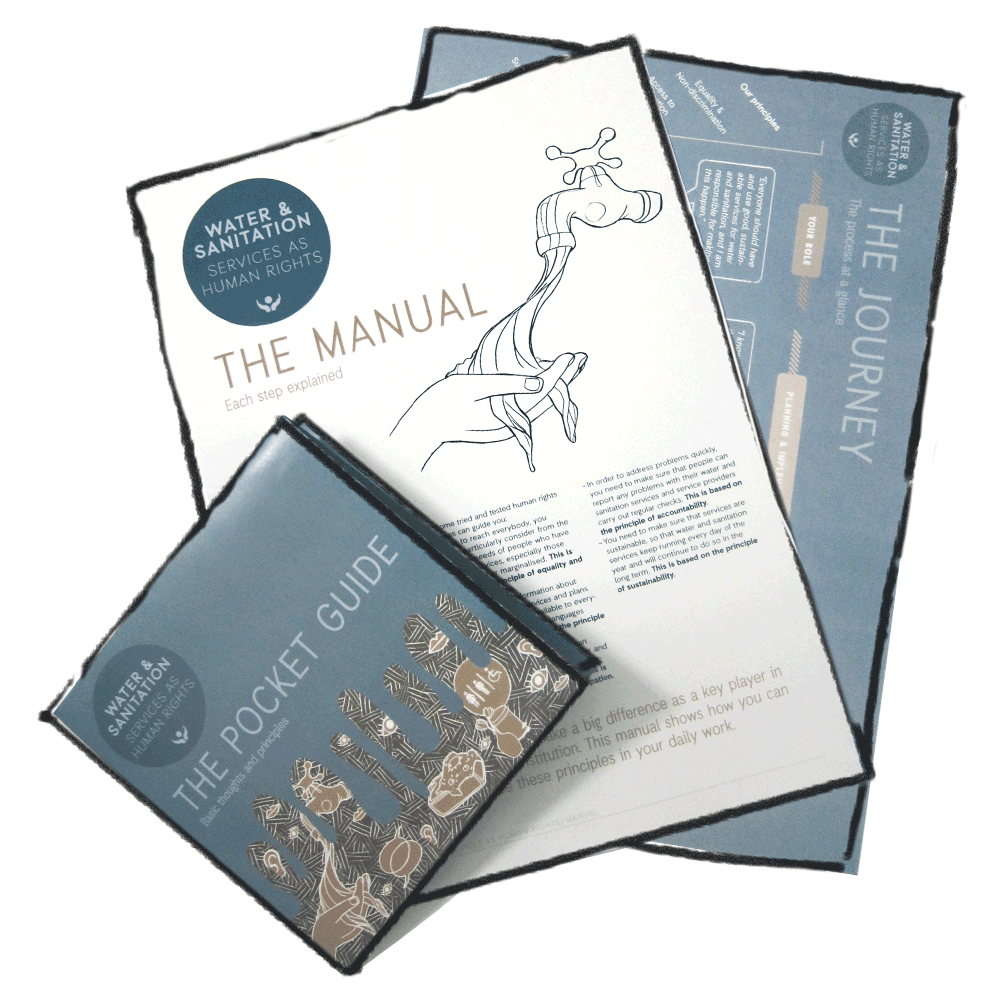
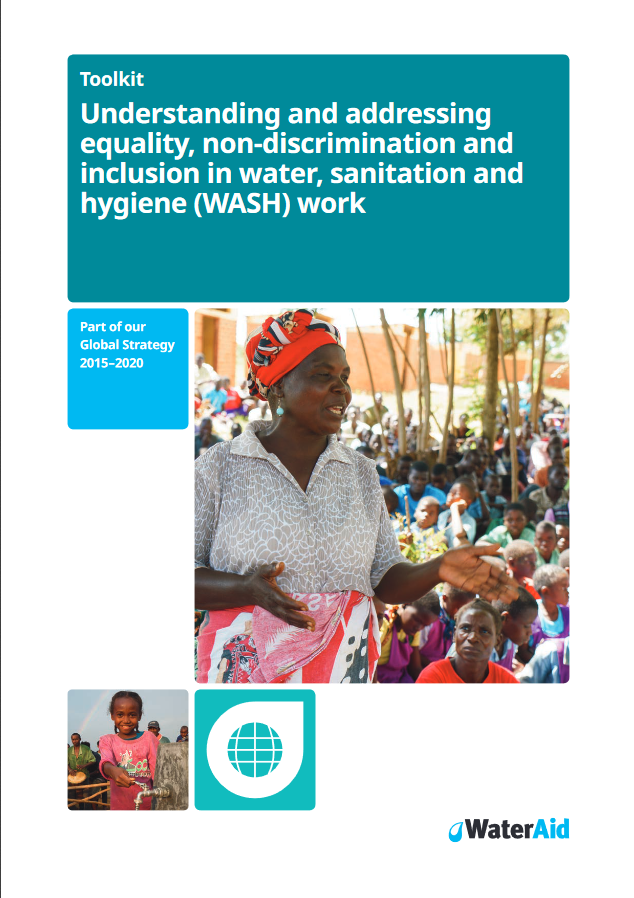
Made for: Programme and advocacy staff
About: What does ‘realising rights’ and ‘tackling inequalities’ really mean for design, implementation and evaluation of WASH programmes? How to ensure that those most at risk of marginalisation are not left behind? This toolkit contains guidance, practical activities and more for programme and advocacy work.
Made by: WaterAid
Made for: Civil society organisations and communities
About: The #ClaimYourWaterRights campaign mobilises civil society organisations to engage service providers and oversight bodies such as regulators, national human rights commissions, parliaments or courts on challenges to the realisation of the human rights to water and sanitation.
Made by: End Water Poverty
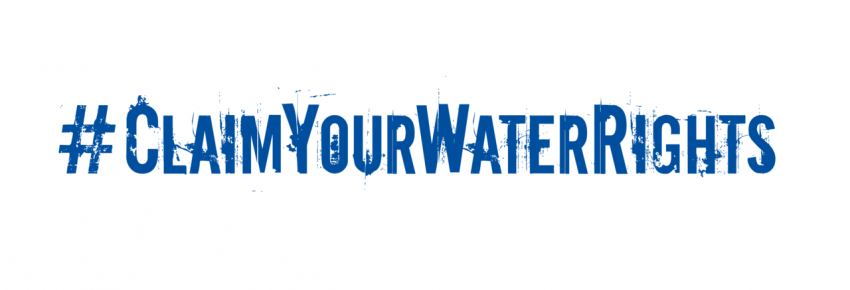
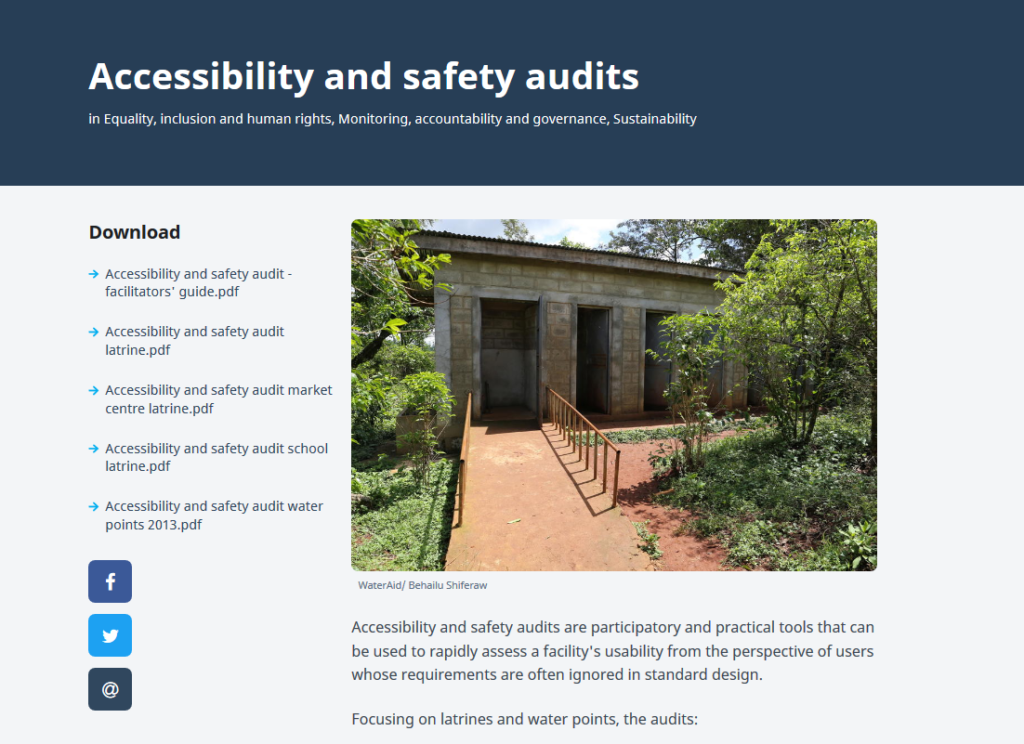
Made for: Practitioners in local government institutions and programme staff.
About: Lack of physical accessibility and personal safety of WASH facilities is often one of the first barriers to equal enjoyment of the human rights to water and sanitation. Accessibility and safety audits are participatory and practical tools that can be used rapidly to assess a facility’s usability from the perspective of the users, whose requirements are often ignored in standard design.
Made by: WaterAid, WEDC
Made for: Government institutions, service providers and regulators
About: This comprehensive Handbook provides guidance on what the human rights to water and sanitation imply. The nine booklets cover legal frameworks, financing, services, monitoring, access to justice and human rights principles, and include checklists.
Made by: Catarina de Albuquerque, then UN Special Rapporteur
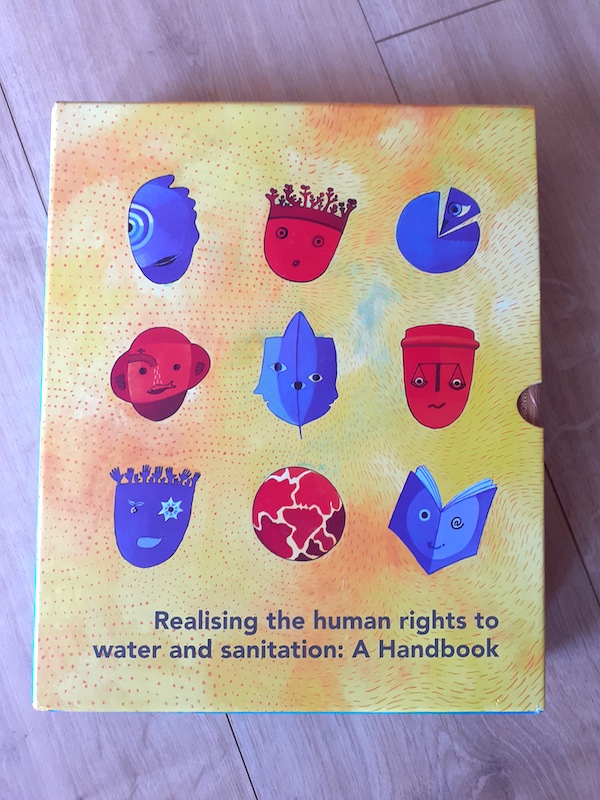
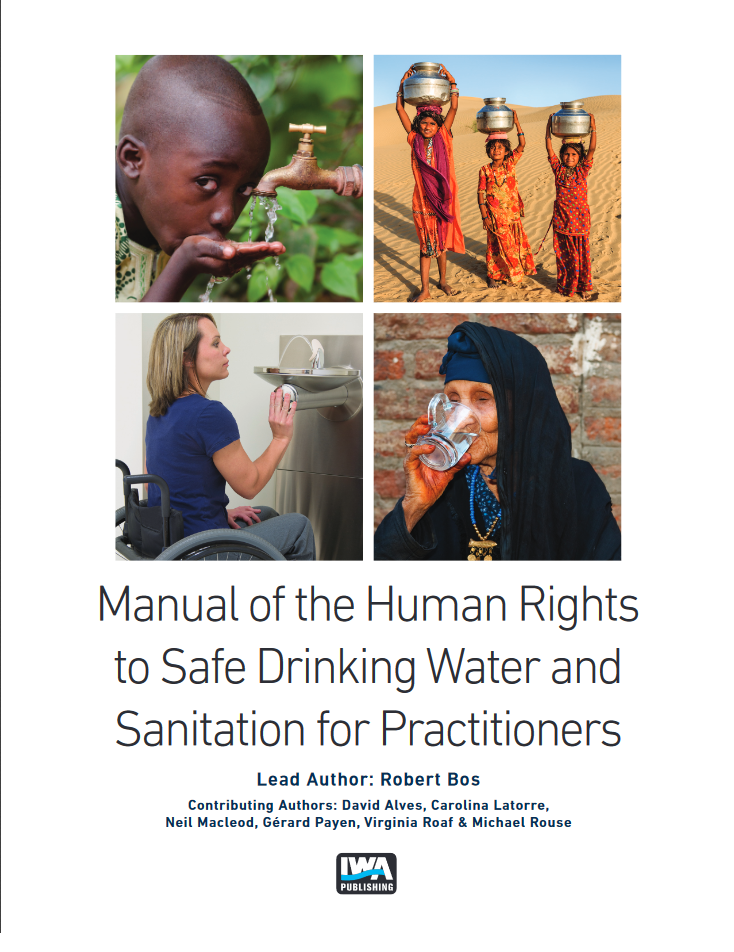
Made for: Operators, managers and regulators.
About: This Manual introduces a human rights perspective to informed decision making in the daily routine of operators, managers and regulators. It encourages active engagement in national dialogues that translate the human rights to water and sanitation into national and local policies, laws and regulations.
Made by: IWA
Publisher: WASH United gGmbH
Fuerbringerstrasse 7 | 10961 Berlin | Germany
Telephone: +49 (0)30 555 768 060
Email: info@wash-united.org